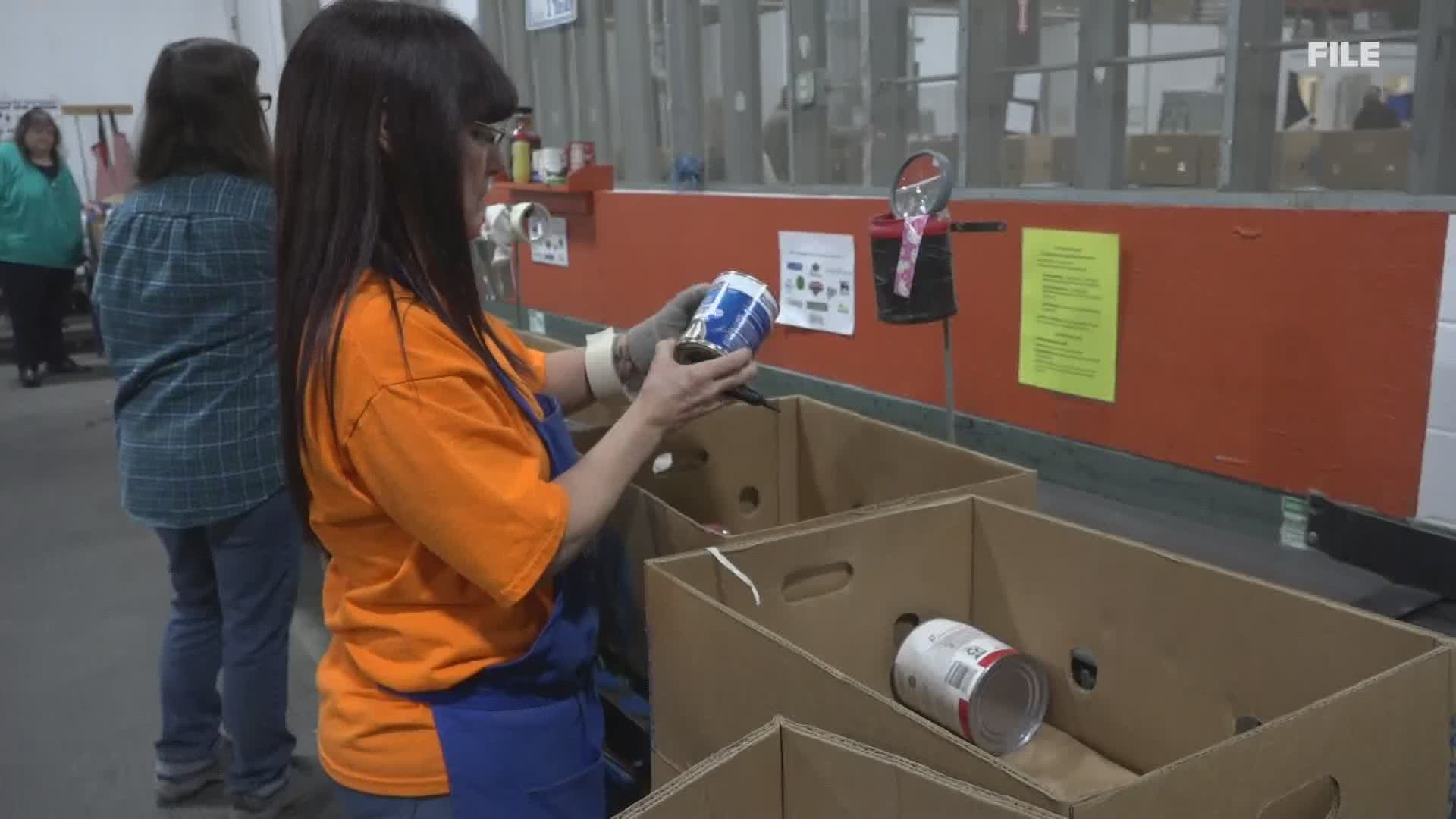MAINE, USA — Daily operations have looked different the past five weeks for Captain Rebecca Kirk and her volunteers at the Bangor Salvation Army. Their soup kitchen is closed for social distancing precautions -- but the demand for takeaway meals is as high as ever.
"We don't know how long we have to do this," Kirk said to NEWS CENTER Maine via video call. Kirk said that her staff members have served more than 300 families through their food pantry, as of late -- and more than 200 of those families are people they have never seen before, or at least haven't seen yet this year.
That growing number is a sign of the times. Even before the coronavirus pandemic, Maine ranked 12th in the nation and first in New England for low food security. Now, thousands have had to file for unemployment and are feeling the economic consequences deeply.
"Sometimes people are calling and, you know, the number one thing they're saying is, 'I just don't know what to do right now,'" Kirk said.
The high demand is also happening across town at the Bangor Area Homeless Shelter. Executive Director Boyd Kronholm said that the shelter has also closed its soup kitchen, but staff are feeding people with bagged lunches. There are about 20 to 25 guests staying at the facility who eat indoors, and then the shelter sees between 40 to 50 other people show up each day.
Kronholm says that within the last six weeks, his team has probably distributed between 700 to 800 extra meals -- an effort that is admirable but that Kronholm worries may not be sustainable.
"My concern has always been, 'How are we going to maintain that, and how long is this going to continue?'" Kronholm told NEWS CENTER Maine.
Behind the scenes of it all is Good Shepherd Food Bank, as its team is working to make sure food pantries and meal sites around the state have the supplies they need. Erin Fogg, the vice president of development and communications, says they are trying to take everything a couple of weeks at a time, while still looking ahead to the future.
"We are looking out over about a six-month time period at this point, trying to model what the need might look like and what the cost might be," Fogg explained. The guess is that food insecurity rates could rise by as much as 40 percent, and Good Shepherd will likely need an estimated $6.3 million in extra funding.
Trends like panic buying at grocery stores has also made it difficult for Good Shepherd to get all of the food items they need. Fogg says that people shopping at food banks want to stock up, too, in an effort to limit trips out of the house -- so shoppers should try to keep that in mind.
"In this particular week, we're feeling the crunch of the food that didn't get here in time," Fogg said about Good Shepherd's situation this week. "We've had to innovate and find new ways to make sure Mainers have access to food."
That innovation has included handing out gift cards to food banks instead of food, trying to make sure that in whatever way possible, Mainers are able to get food on their tables. Members of the community have been doing so, too, by donating -- an act of kindness that these workers say means more now than ever.
"In these really, really tough times, the giving seems to have increased," Kronholm pointed out. "That's really amazing to see."
"It's so much different when it's in your backyard. It's so much different when those faces are actual faces that are important to your life," Kirk noted.
Fogg says that the best way for people to help out if they are able to is by giving some kind of donation. To do so, you can call a local food bank in your area to find out what it is that they may need. Sometimes, it's just cash -- and other times, it's items like gift cards or gas cards.
--
At NEWS CENTER Maine, we’re focusing our news coverage on the facts and not the fear around the illness. To see our full coverage, visit our coronavirus section, here: www.newscentermaine.com/coronavirus.
NEWS CENTER Maine YouTube Coronavirus Playlist
NEWS CENTER Maine Coronavirus Coverage

